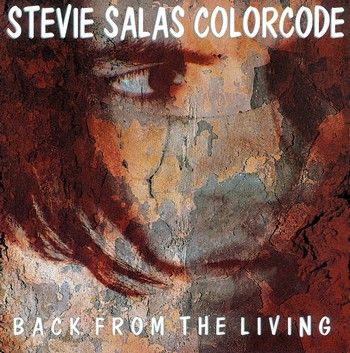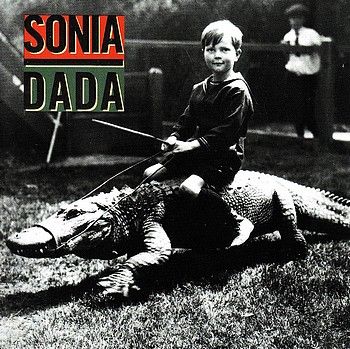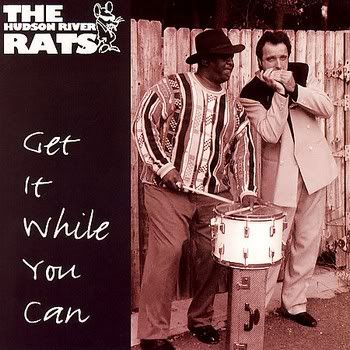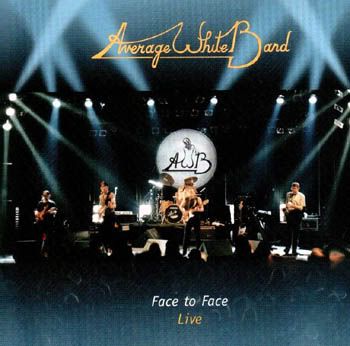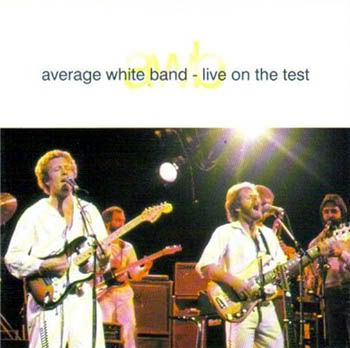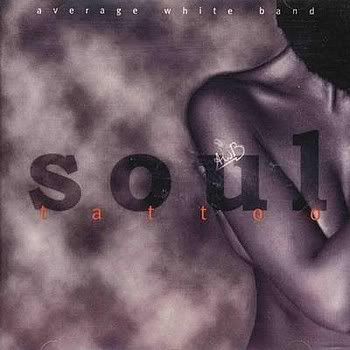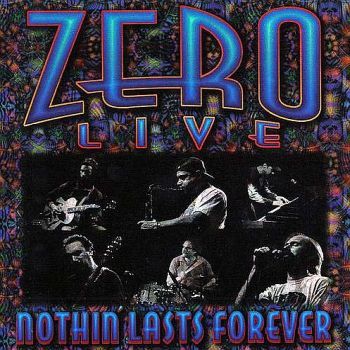
Zero, who just released its third major label album Nothin’ Lasts Forever, has been around a lot longer than most people realize. Founded in 1984 by drummer Greg Anton and guitarist Steve Kimock, the group has managed to skirt the outer edges of the Bay Area/Grateful Dead/jam band scene, and it really wasn’t until a decade later that it began to tour and develop a national audience. Consequently, it remained a well-kept secret — that is until last summer’s Furthur Festival thrust Kimock into the limelight as a last-minute addition to The Other Ones. Prior to the formation of Zero, Anton and Kimock had worked together in the short-lived Heart of Gold Band (Keith and Donna Godchaux’s group). This outfit later mutated into The Ghosts, and it was here that the seeds for Zero were first laid, although Anton and Kimock are the only remaining original members of the band. In 1985, saxophonist Martin Fierro, an alumnus of both the Grateful Dead’s 1973 Fall Tour and Jerry Garcia and Merl Saunders’ Legion of Mary, joined Zero and helped to cement its unique blend of jazz and blues. Currently rounding out the band are bassist Bobby Vega, keyboardist Chip Roland, and singer Judge Murphy. In 1995, Zero released Chance in a Million, its major label debut. This was also the first disc to feature Murphy, and it contained the band's first collaborations with renowned Grateful Dead lyricist Robert Hunter. Recorded live at the Great American Music Hall in 1992, the album featured soaring jams that were built around infectious melodies, and included guest appearances by Vince Welnick, Nicky Hopkins, and John Kahn. In 1997, Zero followed Chance in a Million with an outstanding self-titled studio release — the first to feature Roland who replaced Pete Sears. Recorded live in the studio with no overdubs, the album downplayed the lengthy jams inherent in the group’s concert sound in favor of showcasing its amazing songwriting abilities. Zero’s latest effort Nothin’ Lasts Forever once again returns to capturing the band in a live setting. Recorded at San Francisco’s Maritime Hall, the album features five original compositions, three cover songs, and more than 60 minutes of mind-bending music. As with Zero’s past efforts, there really isn’t a weak point here, which is no surprise considering it's an exceptional live band. The group knows how to build its songs into monumental, transcendental jams, but most importantly, it begins with expertly-crafted material. Ermaline explores a blues-funk groove and is highlighted by the soulful vocals of Murphy and a pair of majestic solos from Fierro and Kimock. The band also delivers a stunning interpretation of Jimi Hendrix’s Little Wing that perfectly captures the beauty and splendor of the original recording. However, the single defining track for Zero is the Kimock-penned Cole’s Law. Because it is such an attention-grabbing tune, the band routinely opens its concerts with it. The song begins with the sound of Vega’s bass, which creates an ebb tide that gently draws the listener into the freely flowing rhythm of Anton’s drum beat. Slowly, but surely, Kimock’s guitar and then Fierro’s saxophone roll in, playing off the tension of the rhythm and slowly building the momentum. Each musical strain follows the initial pattern of Vega’s bass as the band slowly builds to crescendo after crescendo, much like waves crashing on a beach. The result is a radiant, captivating, and truly mesmerizing ensemble performance. One listen to Cole’s Law (or really any of the tracks on this disc), and it’s clear that Zero is where Kimock belongs. The band seems to get better with each tour, and clearly it deserves more attention than it has received *** (Respectable) © John Metzger 1999 The Music Box © The Music Box, March 1999, Volume 6, #3 © http://www.musicbox-online.com/zero-nlf.html#axzz33hdndykf
Recorded live at The Maritime Hall, 1997-98 in San Francisco, CA, this is a great jazz funk/R&B album by the great Bay Area band, Zero with the vastly underrated Steve Kimock on lead guitar. John Metzger of The Music Box said that “the album features five original compositions, three cover songs, and more than 60 minutes of mind-bending music. As with Zero’s past efforts, there really isn’t a weak point here, which is no surprise considering it's an exceptional live band”. Listen to Steve Kimock's “Eudemonic" album, and Zero's great s/t album [All tracks @ 320 Kbps: File size = 156 Mb]
TRACKS / COMPOSERS
1 Cole's Law - S. Kimock 10:52
2 Papa Was A Rollin' Stone - Norman Whitfield 8:39
3 This Is Your Brain On Drums Part 2 - B. Vega, C. Roland, Greg Anton, M. Fierro, S. Kimock 7:02
4 Ermaline - B. Verga, C. Roland, Greg Anton, J. Murphy, R. Hunter, S. Kimock 6:13
5 Forever Is Nowhere - Greg Anton 8:54
6 Home On The Range - Greg Anton, Robert Hunter, Steve Kimock 11:54
7 Little Wing - Jimi Hendrix 11:25
8 I Want You (She's So Heavy) - John Lennon, Paul McCartney 4:52
MUSICIANS
Steve Kimock - Guitar
Bobby Vega - Bass
Chip Roland - Keyboards, Guitar, Vocals
Greg Anton - Drums
Lonnie Walters - Bongos
Martin Fierro - Saxophone, Percussion, Vocals
Judge Murphy - Vocals
BIO
Zero was founded by Steve Kimock and Greg Anton in 1980 in Marin County. Their music being a mixture of jazz, rock and blues - free flowing. Soon they were joined by other Bay Area musicians from the psychedelic caravan, sharing the same spirit: John Cipollina, John Kahn, Banana, Martin Fierro, Bobby Vega, John Farey and Steve Wolf. It's not the vocals that define Zero's music - it's never ending instrumentals - a mental journey if you will. Never chaos though - a well organised trip of musicans who know how to blend their own ways of playing into one way. All being equal and sharing a high quality approach when it comes to recording and playing live - a common goal. The Zero Point! Due to this high quality their first two albums, "Here Goes Nothin'" and "Nothin' Goes Here" were even (re-)released by Mobile Fidelity Sound Lab (Original Master Recordings). Simply because the company's high quality approach and Zero's musical output matched. Nevertheless the albums disappeared way to early from the MFSL catalogue and thus became rare collector items. John Cipollina was a constant member of Zero until his death in 1989. His rhythm guitar playing can be heard on the first three Zero albums. Steve Kimock has always been the lead guitar player and although he is so talented, he is following Cipollina in not getting the recognition he deserves. Another unsung guitar hero. Even Jerry Garcia mentioned Kimock as one of his favorite guitar players, subsequently Zero always had many fans from the Deadhead scene. After their third album "Go Hear Nothin'" which is a live recording, Greg Anton was asked in 1991 to compose a soundtrack for a stageplay based on the mid-sixties film 'The Pawnbroker'. He did this with members of Zero. Unfortunately the soundtrack wasn't released as an album and only available on audio cassette. In 2002 the German Taxim label finally released "Zero Blues" on CD. In addition they also re-released Zero's second album "Nothin' Goes Here". Over the years Zero released four more records (information provided underneath). Some band members left and others joined. The core of Anton and Kimock being the same. A major change was the addition of Robert Hunter as lyricist and Judge Murphy on vocals. This took Zero to yet another level - bringing their instrumentals together with Hunter's lyrics. The high quality remained. Zero stopped playing together at the change of the century but returned to play several shows in 2007. Members included: Steve Kimock, Greg Anton, Martin Fierro, Liam Hanrahan, Melvin Seals, Donna Jean Godchaux-MacKay and John Morgan Kimock. Update 2008: Martin Fierro, who has been a founding member of Zero, passed away Thurday - March 13, 2008 from cancer - please follow the link and read more about Martin on his website. © 2002-2009 bay-area-bands.com http://www.bay-area-bands.com/bab00044.htm


